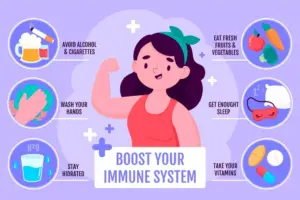Eating disorders are a group of serious mental health conditions that involve disordered eating patterns and attitudes towards food. They can have a severe impact on a person’s physical and emotional health and can be life-threatening if left untreated.
There are several different types of eating disorders, including:
- Anorexia nervosa: characterized by extreme restriction of food intake, leading to dangerously low body weight and an intense fear of gaining weight.
- Bulimia nervosa: characterized by recurrent episodes of binge eating, followed by compensatory behaviors such as purging, fasting, or excessive exercise to prevent weight gain.
- Binge Eating Disorder (BED): characterized by recurrent episodes of binge eating, characterized by eating an excessive amount of food within a short period of time and feeling unable to stop.
- Other Specified Feeding or Eating Disorder (OSFED): This is a category for eating disorders that do not meet the criteria for other specific disorders, such as anorexia, bulimia, or BED but still causes significant distress and impairment.
The causes of eating disorders are complex and multifactorial. It is likely that a combination of genetic, biological, psychological, and environmental factors contribute to the development of eating disorders.
Some common causes of eating disorders include:
- Genetics: Studies suggest that certain genes may make a person more susceptible to developing an eating disorder.
- Brain chemistry: Imbalances in certain chemicals in the brain, such as neurotransmitters, may contribute to the development of eating disorders.
- Environmental factors: Trauma, stress, and major life changes can trigger an eating disorder.
- Societal pressure: The cultural idealization of thinness and constant pressure to conform to a certain body type can contribute to the development of eating disorders.
Symptoms of eating disorders can vary depending on the type of disorder, but some common characteristics include:
- Extreme restriction of food intake or excessive exercise
- Binge eating or purging
- Extreme preoccupation with weight, body shape, and food
- Rapid weight loss or fluctuations in weight
- Distorted body image
- Difficulty concentrating or functioning normally
- Fatigue or weakness
- Irregular menstrual cycles or loss of menstruation
To diagnose an eating disorder, a healthcare professional will typically conduct a thorough evaluation, including a patient interview, a review of the patient’s medical and psychiatric history, and a physical examination. They may also use questionnaires, scales, and other diagnostic tools to assess the severity of symptoms.
Treatment options for eating disorders include:
- Medications such as antidepressants and antipsychotics
- Psychotherapy such as cognitive-behavioural therapy (CBT) and family therapy
- Nutritional counselling to help individuals develop a healthy relationship with food
- Support groups to help individuals connect with others who are going through similar experiences
- Medical monitoring and management of any physical complications caused by the eating disorder
It is important to note that treatment for eating disorders is typically tailored to the individual and may involve a combination of different approaches. It is also important to work closely with a healthcare professional to manage the condition and prevent future episodes. Seeking help early can lead to better outcomes, and it can be a challenging and long-term process, but with the right support, individuals can recover and lead fulfilling lives.
- Top of Form
- Bottom of Form
For further support and information please book an appointment with our specialists….
References:
- https://www.nhs.uk/mental-health/feelings-symptoms-behaviours/behaviours/eating-disorders/overview/
- https://www.nimh.nih.gov/health/publications/eating-disorders
Dr Ibrahim Yahli MD MRCPsych



